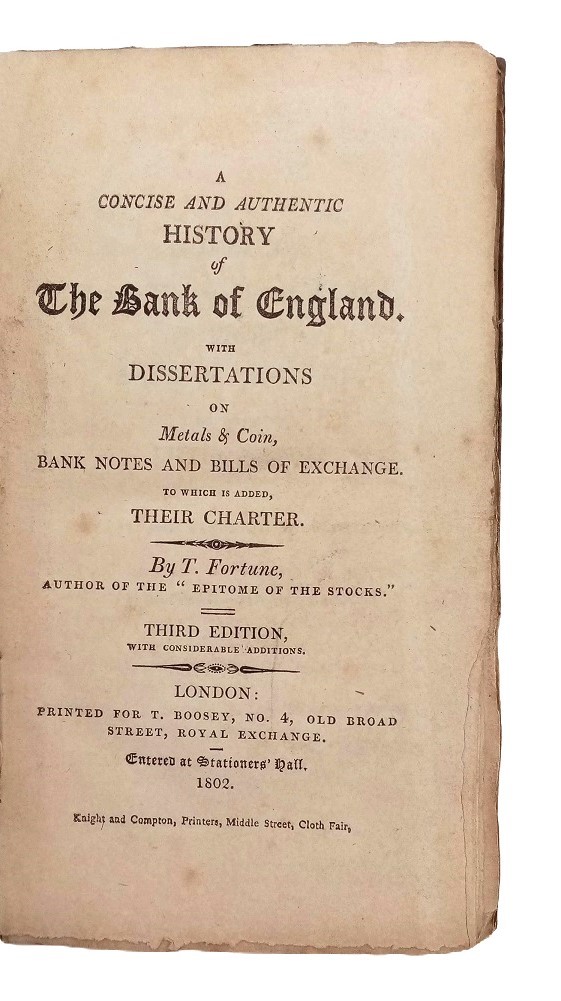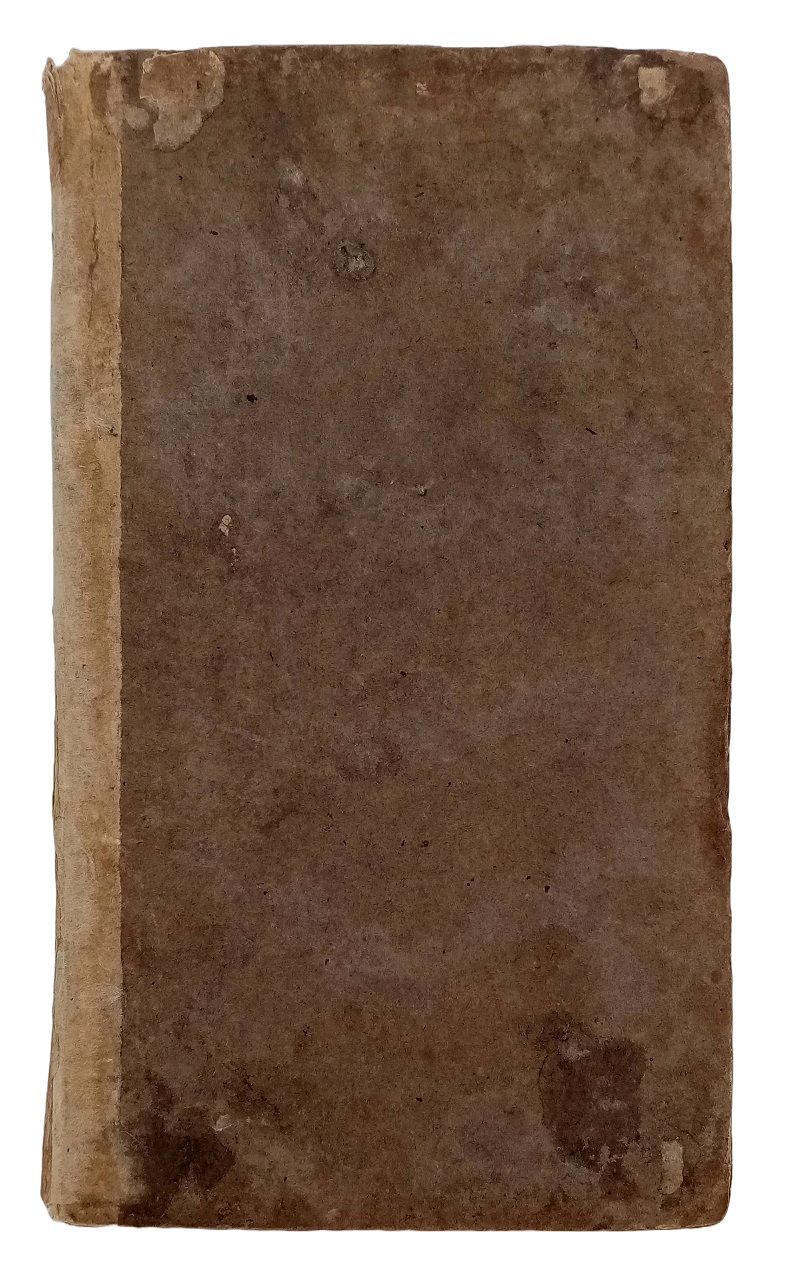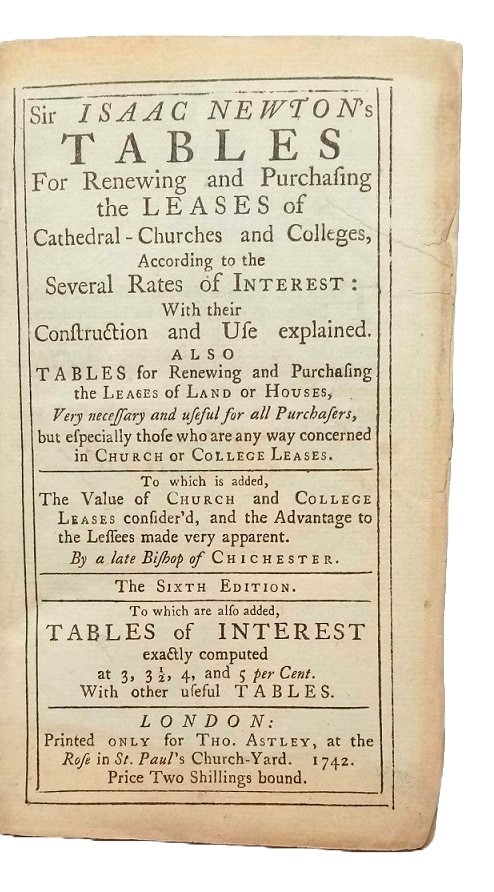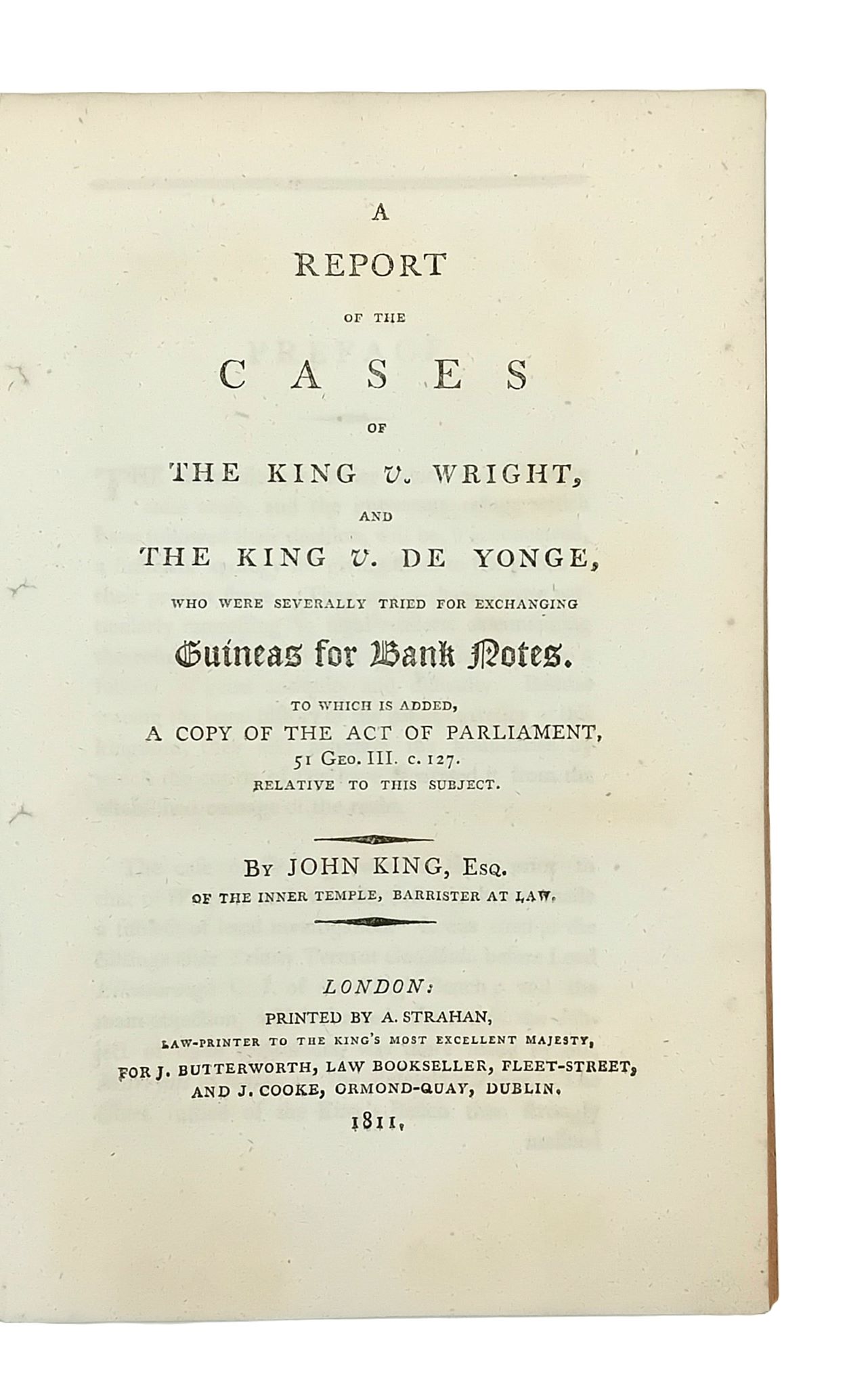

FORTUNE, Thomas.
A concise and authentic history of the Bank of England. With dissertations on medals & coin, bank notes and bills of exchange. To which is added, their charter.
London, Boosey, 1802.
12mo in sixes, pp. [10], 134; very slightly dusty in places but a very good copy in original drab boards, plain paper spine chipped with loss and rather fragile.

Added to your basket:
A concise and authentic history of the Bank of England. With dissertations on medals & coin, bank notes and bills of exchange. To which is added, their charter.
Third edition, ‘with considerable additions’. The first two editions of 1797, says Fortune in his ‘advertisement’, were written to defend the bank against the calumny it received from the public after the financial scares in that year, when the bank was forced to suspend specie payments. This edition is necessitated by the popularity of the first, now ‘changing the tenses from the present to the past’. Fortune thus transforms recent past into history and is thus able to place the bank’s survival of its travails in the context of his argument for a centralized, metropolitan bank. Had there been fewer country banks, he asks, would the panic and bank run of 1797 ever have reached the Bank of England? Fortune might well be an insider considering his attitude. In his ‘dissertations’ calls for further standardization of the coinage and centralization of the Bank to prevent export and debasement (hardly new ideas), but more crucially he asserts the complete surety for the Bank’s trading in bills of exchange, which is, he says, the national property itself; the Bank cannot fail if England does not fall. This is a message for the future, the shared stability of government and bank in past years now considered by Fortune as ‘prophetic of the present times’; if, that is, ‘ambition’ (i.e. greed) can be avoided. The book concludes with the Charter of 1694, which first appears in the second edition.
Fortune published several works on economics and finance, and this is a likely precursor to his History of the Bank of England, from the establishment of that Institution to the present Day.
Goldsmiths’ 18495.

